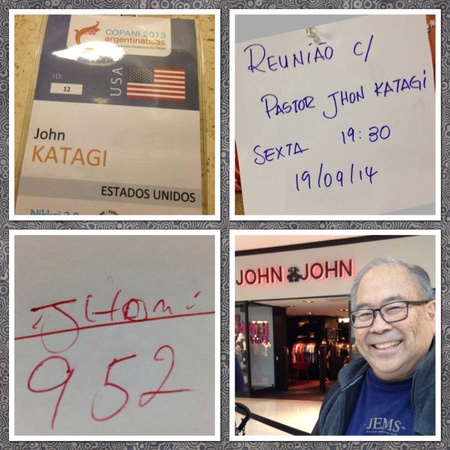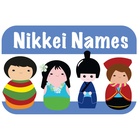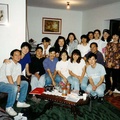On my first visit to Brazil, I attended a conference and received a nametag with the spelling of my last name: Katagui. What? G-U-I? Like Guido? That’s not my name! I took the nametag out of the plastic holder, crossed off the incorrect spelling and wrote it as “it should have been.”
It would be two years before I understood the complexities and peculiarities of the Portuguese language well enough to look back on that nametag incident. As usual I was looking at the perceived problem from an American or English language worldview. That means, of course, that I was somewhat misguided in the Brazilian cultural and linguistic context!
The key to discovery comes from understanding that how letters, especially consonants, are pronounced in English versus how they are pronounced in Portuguese. Basically, the letters “T”and “D” change their pronunciation value depending upon the vowel that follows.
Confused? Yeah, so are most people.
Perhaps the easiest way to look at this is to look at the spelling and pronunciation of (especially) Japanese names. I have a good friend in Brazil whose name, we would say in English, was “Michi.” However, in Portuguese a name spelled M-i-c-h-i would be pronounced “mee shee.” In Brazil, to achieve the “chee” sound that is used in the name Michi requires that the spelling be “M-i-t-i.” The “ti” letter combination is pronounced “chee” in most parts of Brazil.
For a test of this, try pronouncing the following names the Portuguese way:
Kodi (I was mistakenly calling this kid “Cody” for a year!)
Moti (you know, that sticky stuff that you eat on New Year’s Day)
Fudico (a common name for a Japanese woman)
Iamassaki (a common Japanese surname)
Ditian (grandfather)
Batian (grandmother)
Ticara (strength, power)
So circling around, what is the deal about “Katagui?”
When spelling my name as you would here in the US, the pronunciation in Brazil would come out as a soft “G” or “kah tah zhee.” In order to harden the “G” sound when the “I” vowel follows, the addition of a “U” between the “G” and the “I” created the “kah tah ghee” sound. That’s why the Brazilians wrote my nametag that way—out of courtesy for the way a Japanese surname should be pronounced within the context of Brazilian Portuguese.
Actually this blog entry can go into ridiculous detail, so I’ll stop. As a test, do you want to write the name “Fujisaka” when the letter “K” is not part of the Portuguese alphabet? Try!
© 2014 John Katagi







